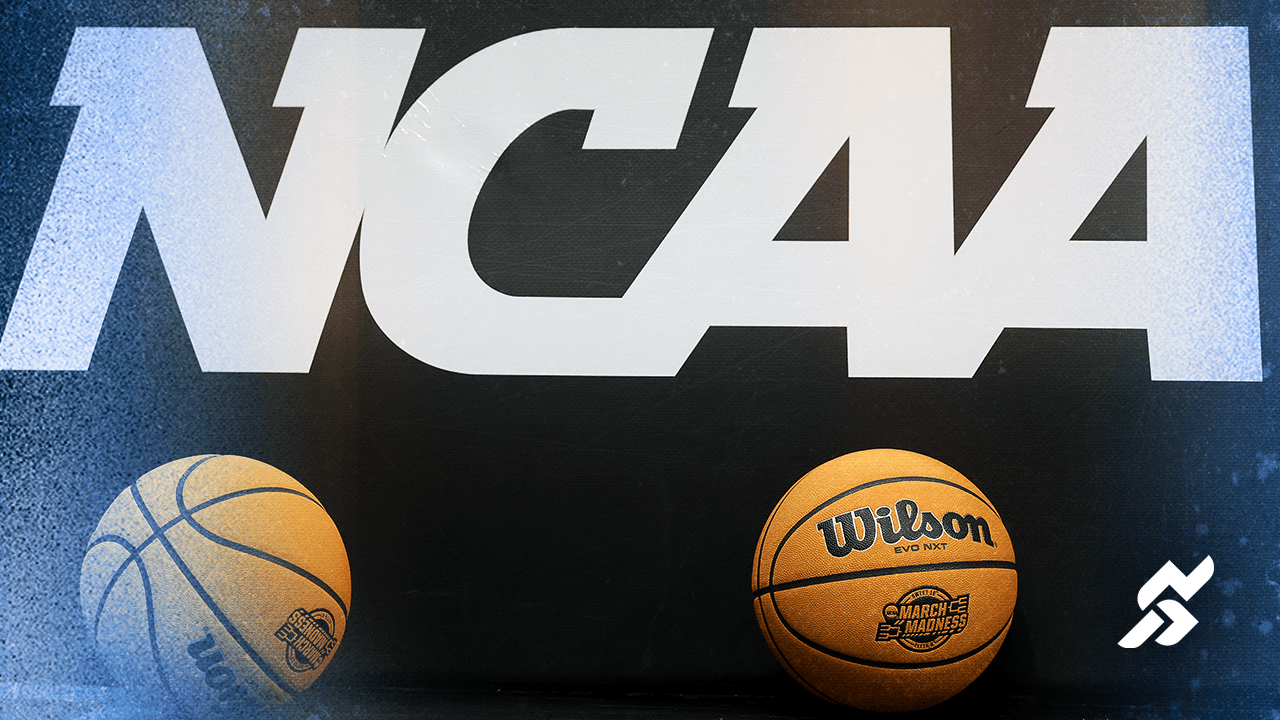
The NCAA on Thursday announced that its enforcement staff “is in the process of alleging” violations regarding 13 former men’s basketball players from Eastern Michigan, Temple, Arizona State, New Orleans, North Carolina A&T and Mississippi Valley who in some instances allegedly bet “on or against their own teams” and “knowingly manipulated scoring or game outcomes.”
The NCAA declined to name the players and cautioned that “facts and alleged behaviors in each case vary.”
Other alleged infractions include sharing information with third parties for purposes of sports betting and refusing to participate in an investigation. Enforcement staff uncovered implicating evidence by obtaining text messages and direct messages on social media platforms.
The NCAA noted that it does not seek penalties against the players’ schools. This indicates the schools cooperated in the NCAA’s investigation and took appropriate, if ineffectual, measures to safeguard against the players engaging in wrongful betting practices.
On Wednesday, the NCAA announced it resolved three similar cases involving former Fresno State and San Jose State players. Mykell Robinson, Steven Vasquez and Jalen Weaver were found to have engaged in varying types of misconduct that, taken together, included betting on their own games, providing information that facilitated other people’s bets, and manipulating performances. They’re now permanently ineligible to play in the NCAA, though the NCAA found their schools to have complied with rules.
College athletes are prohibited by NCAA rules from betting on sports at any level for any sport that has NCAA championships. Depending on the severity of the infraction, punishments can include permanent loss of NCAA eligibility.
There is a long history of college athletes partaking in prohibited, and in some cases illegal, betting practices. Point-shaving and game-fixing related to the 1950 NCAA champion City College of New York carried criminal convictions. Just as infamously, several Boston College basketball players from the 1978-79 season were entangled in a point-shaving scam that led to a BC player and other co-conspirators charged under the Racketeer Influenced and Corrupt Organizations Act (RICO).
The risk of sports betting undermining college games isn’t necessarily surprising, given that more than 500,000 athletes participate in the NCAA in any one year. Universities also have limited resources to monitor athletes, who are also students and have privacy protections under the law and university policies. Meanwhile, coaches, staff, trainers, student workers, interns, subcontractors, business partners and numerous other athletics personnel have access to confidential information that would be useful to bettors.
It is also very easy to bet on sports—especially since legal sports betting has become more the norm than the exception. In 2018, the U.S. Supreme Court ruled in Murphy v. NCAA that it was unconstitutional for Congress, through the Professional and Amateur Sports Betting Act of 1992 (PASPA), to compel states to deny sports betting when there was no accompanying federal standard. As of this year, 38 states, along with Washington, D.C., and Puerto Rico, have legalized sports betting.
The prevalence of iPhones, smart phones and related devices that use sports betting apps make it simple to place bets. In 2023, an NCAA study found that 67% of college students living on campus had engaged in sports betting, 41% had bet on their school’s teams, and 35% had used a student bookmaker.
In a statement regarding Thursday’s announcement, NCAA president Charlie Baker said the NCAA “monitors over 22,000 contests every year and will continue to aggressively pursue competition integrity risks such as these.”
He added that the “rise of sports betting is creating more opportunity for athletes across sports to engage in this unacceptable behavior” and urged regulators and gaming companies to “reduce these integrity risks by eliminating prop bets and giving sports leagues a seat at the table when setting policies.”
Last year, New Hampshire Lottery Commission executive director Charlie McIntyre—a former prosecutor in Boston who took on drug dealers and organized crime—told Sportico in a phone interview that college sports is a major worry for betting regulators.
“There are tens of thousands of college football players every year who play on teams that sometimes have more than 100 players, only a tiny fraction of whom have legit NFL aspirations, and they play at schools that often can’t afford to hire personnel to really watch what is going on,” McIntyre said. He also pointed out that colleges have significant roster turnover and feature young people, typically between the ages of 17 and 22.
“Think of how many kids at these places know about player injuries, either directly from players or their friends or their classmates?” McIntyre asked. “And think of how many workers, including fellow students, assistants, trainers or media persons have access to information that would be valuable? It’s an enormous number.”

